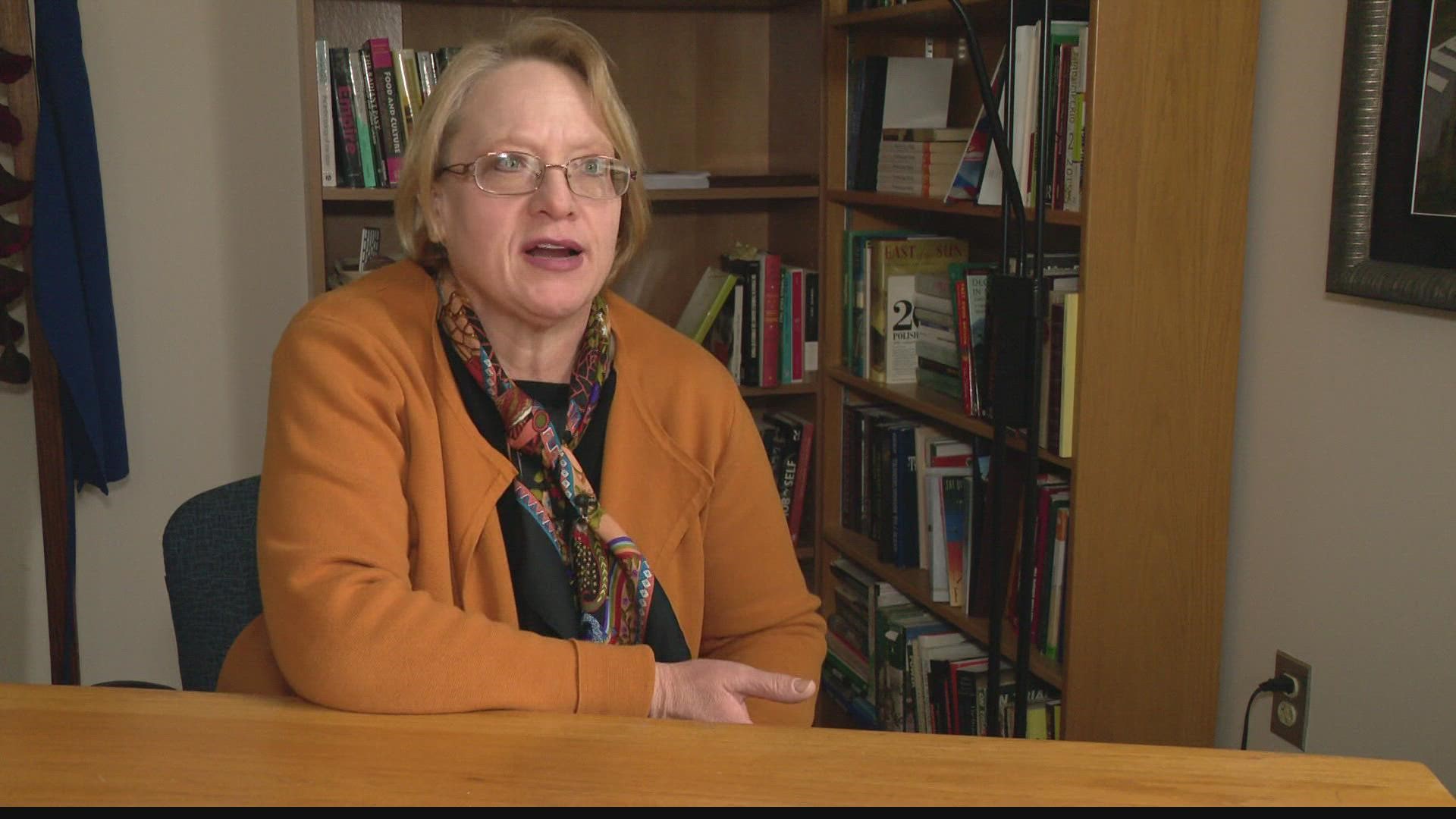BLOOMINGTON, Ind. — The images of Ukrainian refugees are enough to break anyone's heart.
"I'm just torn apart by it," said Elizabeth Cullen Dunn. For the IU professor and director of IU's Center for Refugee Studies, it is a familiar feeling.
"I know what happens to them. I know how long they grieve for little things like mugs and teapots and familiar chairs," she said. "I know how many nights they wake up screaming because of what they've seen. I know how long they sit just frozen and staring because the world has stopped making sense for them."
Dunn studies what happens when people are forced from their homes during war. She's been on the ground, and she's about to go again. This time, she's headed Ukraine's border with Poland — ground zero for a growing humanitarian crisis. Nearly 2 million men, women and children so far have left Ukraine with little more than the clothes on their back.
"Part of what I always do is help," Dunn said. "Because you learn about the work by doing the work."
She'll be helping transport people from the border to a nearby train station in Poland.
"And whatever else needs done," Dunn said.
The help pouring in is unlike anything she's ever seen.
In this digital age, there has been what Dunn calls overwhelming support — not organized by any government entity, but by individuals and groups around the world. On social media, post after post highlights fundraisers, donation drives and travel plans to help.
Dunn herself solicited cash donations on her Facebook page to distribute once she arrives.
"I thought I would get $800. And I've gotten $17,000."
The response by the Polish people has also been remarkable.
"Every Polish person I know has a Ukrainian family in their spare bedroom," she said.
RELATED: Where are Ukrainian refugees headed?
The need for that help continues to grow. This week, the United Nations told NBC News the wave of refugees will be well over 4 million — much higher than anyone expected.
Dunn said the immediate need for food safety and shelter is being met. She's more concerned about what happens next.
"I think we need to think about how we're going to give that love not just now but six months from now, six years from now. This is going to be a very long haul. Ukraine is being destroyed like Syria was. And people will not go home for a very long time," she said.
That means long-term housing and employment.
Dunn said many won't go home at all. That will mean millions of Ukrainian people eventually resettling across Europe and here in the U.S — including Indiana.
Dunn said Indianapolis has the seventh-largest Ukrainian population in the United States.
"So I would expect we will in fact get people who have evacuated from Ukraine. They will stop somewhere else in Europe first," she said. "And they will come here to join family members."

